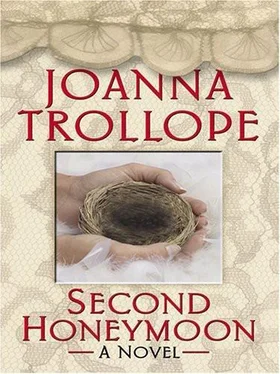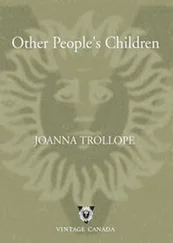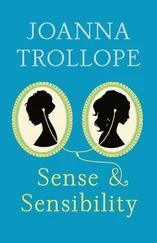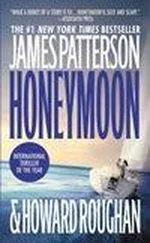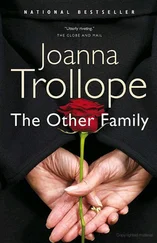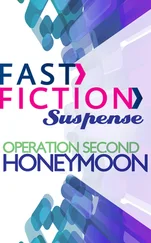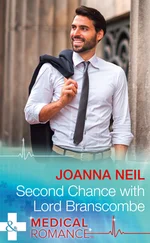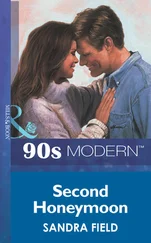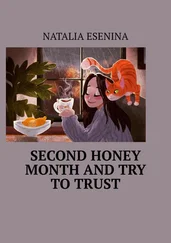‘Cross,’ Ruth had said to him at the weekend, tapping away at her laptop and not looking up. ‘You look so cross’.
He looked at himself now, stretched and blobbed by the soft reflections in the brass. Cross might be how he looked: frightened was how he felt. And frightened was how he had always hated feeling, ever since those first unnerving nights in that new ramshackle house when he was a child and they expected him to sleep, knowing that there were holes in the roof, real holes through which anything might swoop, anything clawed and fanged and malevolent. His gumboots, Matthew remembered, had been his salvation. Solid and reassuring and rubber, he had worn them in the uncarpeted house all day for years, and slept with them by his bed. When they began to cramp his toes, he would pester Edie for new ones, so great was the terror of being without a pair, without their simple reassurance. They seemed to be able to insulate him from fear, from the unknown, to protect him while still letting him see what lay ahead. When he finally had to trade them in for trainers, he’d known he’d never have such a straightforward mechanism for consolation ever again. And he’d been right.
The lift doors slid open, revealing walls and floor made of stamped silvery metal. Matthew rode down to the ground floor with his eyes shut and emerged into the immense glass foyer that in turn gave on to a vast pale outdoor concourse where architectural trees planted in concrete drums blew stiffly about in the wind from the river. Matthew buttoned up his jacket to stop his tie whipping across his face, and plunged out towards the coffee shop on a distant corner. A large latte – a girl’s drink, but sometimes it offered just the right kind of unremarkable comfort – and half an hour nudging figures about would restore him, he was sure, to a place where anxiety resolved itself into being nothing more than a very temporary state of not quite understanding.
He carried his tall white mug to a table by the window. Across the square, even though the river itself was hidden, he could see a huge, clear sweep of sky, hurrying spring sky full of racing clouds and the sharp white trails of aeroplanes. He had never liked weather much, had always seen its unpredictability as vaguely threatening, but it was a pleasure to look at from behind the safety of glass, like looking at a turbulent painting, a Turner maybe, or a Goya, securely confined within a frame. He had once confessed to Ruth, in the early days when they were still entrancedly exploring one another, that he enjoyed the idea of the presence of chaos, somewhere out there, whirling away with all its arbitrary energies, but he couldn’t actually handle it if it came too close to him.
‘Oh, I know!’ she’d said, her eyes shining. ‘We couldn’t have a world without perfect control, but please may we be allowed to control our own bit of it, for ever and ever, Amen!’
After Edie, Matthew could not believe Ruth’s sense of order: her make-up in perspex boxes, her T-shirts in piles of three, her papers filed in translucent plastic folders made meticulously – and cheaply – in Japan. There were no leftovers in her fridge, no scattered newspapers on her sofa, no jumble of tired shoes in the bottom of her cupboard. Ruth had been a business consultant when he met her, and was now, at thirty-two, a junior head hunter for a firm that specialised in finance directors. When they met, she was earning a third again as much as he was; now, her income was closer to twice his. For the sake of his dignity – undefined as a danger area, but well understood by both of them – they had shared everything as an equal financial commitment on both sides: rent, bills, entertainment, travel. To create flexibility within this equable arrangement, a further understanding grew up that if Ruth contributed more money (a cashmere sweater for Matthew, Eurostar tickets to see an exhibition in Paris), Matthew would repay, without being asked, in kind (replant the window boxes, breakfast for Ruth in bed). It was a system, Matthew thought, that had worked very well for two and a half years and that his parents would consider not just barmy, but over-controlled to a point of inhumanity.
His parents’ opinion on most things was, in fact, something Matthew never sought. He loved them in a suspended, unexamined way, and while he found their way of life hopelessly dated, it was something that was as much part of them as their personalities. When he saw Ruth – these occasions were very seldom – seated at his parents’ kitchen table in her considered weekend clothes and forming such a contrast to the evolved disorder of her surroundings, he felt an unmistakable affection for the way he had been brought up, and a profound pride in the way he was living now. It was made easier, of course, by the fact that Edie and Ruth liked each other, that each fulfilled the expectations of how the other should be.
‘Ghastly cat,’ Edie would say, snatching Arsie off Ruth’s black cashmere.
‘Bliss,’ Ruth would say, sinking into one of the deep, battered armchairs in the sitting room, full of the kind of food she would never buy herself. ‘Instant destress’.
Periodically, Matthew would urge his parents to mend the house, update their wills, reconsider their futures. Encouraged by the success of persuading his father to specialise more, he had hoped to nudge his mother towards more commitment to work and thereby – though he bore his brother no grudge – detach her from the long, long nurturing of Ben. He was actually slightly congratulating himself on the success – or rather, lack of fireworks – in initial conversations with Edie about how life might be after Ben, when Ben confounded them all by announcing he was off to live with a girl none of them really knew, in her mother’s flat in Walthamstow. When told this news by Matthew, Ruth said, ‘Heavens. Where’s Walthamstow?’
Matthew was, he supposed, glad of Ben’s initiative. But it had been impulsively done and had left all kinds of ragged ends behind, which Matthew was only just beginning to collect his thoughts about when Ruth announced, quite suddenly, that it was time they were thinking of buying somewhere to live.
‘Actually,’ she said, ‘it’s not just time. It’s overdue. I should have bought five years ago’.
Matthew was in the middle of assembling a flatpack cabinet to house the television and DVD player. At the moment Ruth spoke, he was counting the screws supplied for the door hinges, and hoping that there would be sixteen as promised and not fifteen as seemed likely.
He said stupidly, ‘You didn’t know me five years ago’.
‘I’m not talking relationships,’ Ruth said. She was sorting her gym kit. ‘I’m talking property investment’.
Matthew looked down at the screws in his hand. It would be so bloody annoying to have to go shopping for one single screw. His father, of course, would have screws of every type, mostly paint-stained and kept unsorted in old coffee jars, but at least he would have them.
‘Matt?’
‘Yes’.
‘Did you hear me?’
‘Yes. You need four screws a hinge for this and they have given me fifteen’.
Ruth put the gym kit down and came across to where Matthew was standing. She put her hand into his and scooped up the screws.
‘Just concentrate on what I’m saying’.
He looked at her.
‘It’s time we bought a flat of our own,’ Ruth said.
That was a week ago. One week. In the course of that week they had talked endlessly about the subject and Ruth had given Matthew a number of things to read. One of these was a newspaper article that asserted that there were now over three hundred thousand professional young women working in the City with liquid assets of at least two hundred thousand pounds each.
Читать дальше
